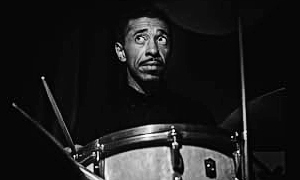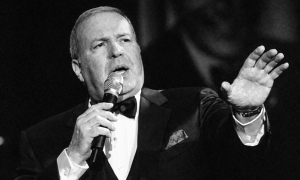Home » Jazz Articles » Book Review » Ellington Uptown: Duke Ellington, James P. Johnson, and ...
Ellington Uptown: Duke Ellington, James P. Johnson, and the Birth of Concert Jazz
 Ellington Uptown: Duke Ellington, James P. Johnson, and the Birth of Concert Jazz
Ellington Uptown: Duke Ellington, James P. Johnson, and the Birth of Concert Jazz James Howland
Hardcover; 360 pages
ISBN: 978-0-472-11605-8
University of Michigan Press
2009
Ellington Uptown addresses the development of concert jazz, a largely neglected style that emerged near the beginning of the 20th century and has popped up periodically ever since. The impetus to develop this style of jazz came from the desire to create something that was considered more "serious" music, and John Howland focuses specifically on the works of pianists and composers James P. Johnson and Duke Ellington to explore how the concert jazz work came to be. Howland takes a couple of representative works from Ellington and Johnson and exhaustively traces the development of each through the musical and social culture that surrounded it.
A work like Johnson's "Yamekraw," for instance, is a blend of various African-American folk music traditions, while also influenced by the commercially successful efforts of bandleader Paul Whiteman, who brought a watered down version of jazz to the mass public. In fact, Whiteman was scheduled to play an early version of "Yamekraw" but his band couldn't handle the composition; the performance was then turned over to W.C. Handy. This, to some, is justice.
Unfortunately, Ellington Uptown is dry, academic stuff that reads more like research than lively prose. It is riddled with scores and charts, never a good sign for a page turner, and Howland treats the music like an artifact rather than the living pieces of entertainment they were when performed. Those who find value in looking at comparisons between musical scores, or the charts that illustrate the breakdown of various performances, are most likely those in academia, and perhaps this is the book's intended audience. Others looking for a casual read won't find it here.
Admittedly, one of Howland's objectives is to bring to light some neglected compositions, so that people will want to hear them again, and he has achieved that. Johnson in particular is someone who's work is in short supply, and Howland documents that there are recordings lapsing in off-catalog limbo that could be reissued. Ellington is one of the greatest composers of all time, yet his early attempts at creating symphonic jazz (which he perfected later on) are largely ignored by modern listeners.
The desire to legitimize jazz, to give it a "higher" level of integrity, has gone on for some time, from third stream music to trumpeter Wynton Marsalis's cross discipline compositions. Howland captures the roots of this movement in thorough, yet academic, style.
Tags
PREVIOUS / NEXT
Support All About Jazz
 All About Jazz has been a pillar of jazz since 1995, championing it as an art form and, more importantly, supporting the musicians who make it. Our enduring commitment has made "AAJ" one of the most culturally important websites of its kind, read by hundreds of thousands of fans, musicians and industry figures every month.
All About Jazz has been a pillar of jazz since 1995, championing it as an art form and, more importantly, supporting the musicians who make it. Our enduring commitment has made "AAJ" one of the most culturally important websites of its kind, read by hundreds of thousands of fans, musicians and industry figures every month.






















